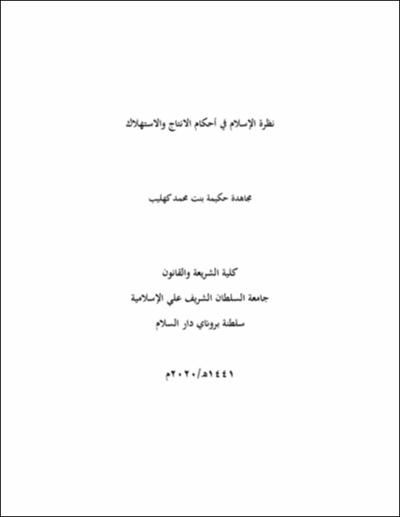نظرة الإسلام في أحكام الانتاج والاستهلا ك

Date
2020Author
Mujahidah Hakimah binti Kahlib
Abstract
Production and consumption are part and parcel of daily life. In today’s world, where conventional economics is prioritizing self-interest and profit maximization, Muslim manufacturers and consumers should be aware of the production and consumption guidelines as set out by Islam, in which Islam emphasizes on social and moral interest, and to regard production and consumption as an act of worship which will affect one’s choices in this world and the hereafter. This study aims to educate Muslims on how production and consumption are viewed from the Islamic perspective, especially in how production and consumption are linked to the objectives of Syariah (Maqasid Syariah) and how it actually protects a person’s religion (hifz al-din), life (hifz al-nafs) and wealth (hifz al-mal). In this study, the researcher uses the inductive approach and collects data from various sources, such as books of Fiqh and objectives of Fiqh, Islamic economics, as well as scholarly journals and articles. Analysis from these sources results in the differences between production and consumption in conventional economics and Islamic economics, and how production and consumption in the Islamic economics better benefit mankind and even non-Muslim countries are implementing it as it fair to both manufacturer and consumer. The researcher hopes that by conducting this study, many people, including herself, would benefit from knowing the correct principles of production and consumption in Islam, the purpose of it, and to become examples for others in hope of achieving the blessing of Allah swt (MardhatilLah) in this world and the hereafter.
Collections
Alternative Title
Production and Consumption from the Islamic Perspective

